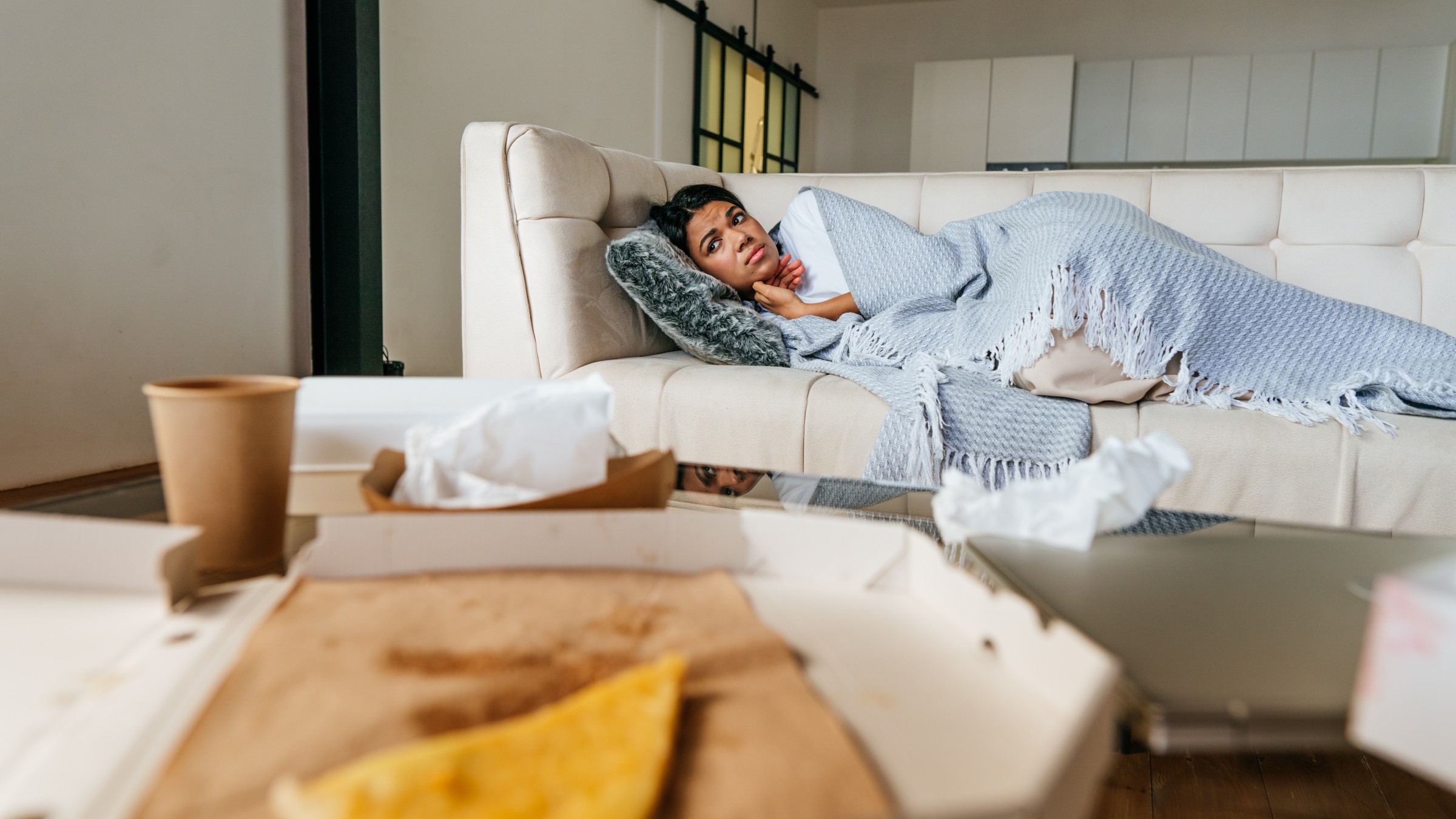Physiology: Why do you feel sleepy?
Physiology: Why do you feel sleepy?
How many hours do you stay awake? Or how many days can you continue to work without sleep? Perhaps you do not have the practice and experience of it. And, it is hardly possible to practice.
Because this is against the nature of our body. Our body sleeps for 7-8 hours every two ticks of the clock. That is, we are not in an active and awake state. Why does this happen? Why do we feel sleepy?
Prof. Head of Psychiatry Department of University Teaching Hospital. Dr. Saroj Prasad Ojha says, 'The human body cannot stay awake for 24 hours uninterruptedly. When the body is constantly in motion, mental and physical activity is taking place. As the blood circulation is also going on during this period, one gets tired after some time. Energies begin to decrease. As the body relaxes and relaxes, after sunset, the nervous system begins to show its effect of sleep-inducing chemicals. And I feel sleepy.
Sleep is also necessary for the body to store energy and strength. According to Sleep Foundation Organization.com, healthy people fall asleep within 15 to 20 minutes. However, some fall asleep earlier than this and some fall asleep later. But there is no concrete answer to sleep during this period.
What happens when you sleep?
Dr. According to Ojha, when we turn off the light in the room and close our eyes and sleep, then alpha rays are released from our brain, which makes us sleepy. We become conscious and become semi-conscious. During this period, our brain is separated from the outside world.
Why do we feel unconscious during sleep?
Dr. According to Ojha, when a person is asleep, there are 4 to 6 chakras. In this process, organs like brain and heart are moving slowly.
There is a sleep cycle of about 90 minutes, with a 75-minute cycle being deep. It is also called non-rapid movement.
In that sequence, due to slowness of the organs, we become unconscious, so even if we dream, we cannot remember Prof. Dr. Ojha says.
There is no clear fact about how long a person can live. If you don't sleep for three to four days at night, the brain starts to think the illusion is true. Psychiatrist at Patan Mental Hospital, Dr. Suresh Adhikari says.
So how do you sleep at night?
Pvt. Dr. According to Ojha, when the sun sets, the brain starts releasing a healthy hormone called melatonin. That hormone is produced only at night in a dark room. That's why we feel sleepy at night.
With the light of sunrise in the morning, the melatonin chemical stops showing its effect and serotonin starts to be released. As a result, our sleep opens up," said Dr. Ojha says.
Can't people live without sleep?
He has a long record of staying at night continuously without sleeping for 265 hours (longer than 11 days). According to a study published in the National Library of Medicine, the record was held by 17-year-old Randy Granson in 1964. As a result, his name became a world record. But due to long-term insomnia, concentration and other mental problems appeared.
What does the digestive system do while sleeping?
Stomach and Liver Specialist of Civil Hospital Dr. According to Vidhanidhi Paudel, the digestive system also works at night. But it works at slow speed.
During this time, the digestive tissue is repaired and developed by using the glucose and protein made from the food we eat. So that the next day remains energetic for digestion.
"Hormone that cures disease is released while sleeping"
According to the American Heart Foundation, all the systems of the human body are 'renewed' during sleep. If he does not get enough sleep, it will affect him.
Deep sleep increases blood flow to the muscles. In this process, hormones are released from various glands and reach all parts of the body lying in the same position through the blood.
As the blood and cells carry hormones, proteins along with oxygen and nutrients, it heals the pain, injury and swelling in the muscles. Cells regenerate and repair with increased blood flow.
The body also works at night: Sleep Heart Foundation
- The brain gets time to recognize and remove the toxic element.
- Nerve cells communicate with each other and help keep the brain functioning healthy.
- Hormones and proteins are produced that benefit cell formation, energy storage and the overall health of the body.
- The reaction of chemicals that develop resistance occurs at this time and is consumed as needed.
- Sleep maintains memory by converting short-term past memories into long-term ones.
- Erasing or forgetting unnecessary information happens at this time. Unnecessary memories can also disrupt the nervous system.
Why sleep less?
There may be three reasons for lack of sleep or lack of sleep. Anupraj Bhandari says. The first may be the environmental reason. If there is a lot of noise in or around the place where you live, if the bed is not as comfortable as you think, people may not sleep well.
Secondly, even if you are stressed, you will not sleep. Thirdly, there is no sleep due to physical ailments and illnesses. Similarly, night workers cannot fall asleep on time even if they want to. Because of this, they often have sleep disorders, i.e. problems of not sleeping well, he says.
"Nurses, doctors, security personnel, who have to get up because of their night jobs, seem to have sleep problems," he says, "but such sleep may also be compensated."
is If you are on duty one night, the next day in the afternoon and the third night if you sleep on time, you can get sleep compensation,' said Dr. Bhandari says.
What happens if you don't get enough sleep?
Without enough sleep, it is difficult for the body to function properly. Lack of sleep affects the kidneys, blood, brain and mental health. Vasudev Karki says. According to him, there are many cases of serious car accidents and even death among adults due to lack of sleep.
Likewise, lack of sleep in the elderly can increase the problem of falling out of bed and breaking bones. Nervous problems such as dementia can surround you.
Other visible problems
- Mood changes
- Depression
- Poor memory
- Poor concentration
– Fatigue, weak immune system
- Weight gain
– Chronic diseases, such as diabetes and heart disease
- Risk of early death.
Various studies have also shown that people who sleep less die relatively early. According to a study published in The Guardian Journal, people who slept less than six hours died 12 percent faster than those who slept more than eight hours.
Academics from the UK and Italy analyzed data from 16 separate studies across America and Asia, from which this conclusion was drawn. Similarly, apart from death, various health problems are seen due to lack of sleep.
Generally, 7 to 8 hours of sleep is considered good. However, it has not been confirmed that this is the time to sleep. Doctors say that sleep time is also determined according to the nature of human body and work.
America's Center for Disease Control and Prevention (CDC) has recommended a sleep duration of 24 hours based on age.
- From birth to 3 months: 14 to 17 hours
– 4 to 12 months: 12 to 16 hours
- 1 to 2 years: 11 to 14 hours
- 3 to 5 years: 10 to 13 hours
- 6 to 12 years: 9 to 12 hours
- From 13 to 18 years: 8 to 10 hours
- From 18 to 60 years: more than 7 hours
- 61 to 65 years: 7 to 8 hours
- Above 65 years: 7 hours
The CDC has suggested this to maintain the balance of sleep.
- Making the time of going to bed and waking up in the morning the same.
- Creating a calm, comfortable and favorable temperature in the room.
- Switch off electronic devices, mobiles, laptops, lights, TV 30 minutes before bedtime.
- Do not eat heavy food and drink alcohol before going to bed.
- Do not drink caffeinated drinks in the evening and at night.
- Do not sleep in the afternoon.
- Exercise daily to keep the body energetic and weight balanced.
Interesting facts and myths about sleep
Misconception: Don't drink milk before going to bed.
Drinking warm milk before going to bed helps in better sleep. Many people drink milk before going to bed, while others advise not to drink milk. But doctors say that drinking warm milk before going to bed will help you sleep better.
Milk contains tryptophan, which helps people sleep. Tryptophan increases melatonin. This hormone regulates the heart rate in the body and helps in sleep. Therefore, it is advisable to drink a glass of warm milk before going to bed.
Delusion: Even if you are not sleepy, it is better to sit on the bed with your eyes closed.
- You can't sleep just by closing your eyes. In the case of insomnia, just keeping the eyes closed does not induce sleep. If you can't fall asleep after trying for more than 20-30 minutes, you should get out of bed and try to rest in other ways.
For this, you can try to concentrate by listening to music. You can stop using mobile or any other gadget especially to avoid bright light disturbing your sleep. Anything can be read in low light. If you feel sleepy after these activities, you can go to bed.
Misconception: There is no problem in eating food in the middle of the night.
- It is better not to eat food in base. Waking up at night to eat is not a good sign. If you have a habit of eating lunch in the middle of the night, it may be a sign of diabetes or an eating disorder.
Generally, one should be satisfied with the food eaten till 10 pm and should not wake up in the middle of the night and eat again. It disrupts sleep patterns and causes obesity. If this is happening regularly then it is necessary to pay attention.
Misconception: Sleeping with lights on will harm the body.
- There may be some discomfort when sleeping with the light on. A dark room without light is suitable for sleeping. The lights in the room can be dimmed while sleeping. Light activates the body's wake-up hormone, so it may be difficult to fall asleep with the lights on. Some people can get used to it. They may feel insecure without lights, but doctors suggest that they should turn on soft lights while sleeping.
There is a saying, eat breakfast like a king and dinner like a pauper. It is very important to get good sleep, because any oily, vegetable food is good for health, but if eaten before going to bed, it causes gastric problems and flatulence, which hinders good sleep.
Myth: Warmer bedroom temperatures are better for sleep.
- Warm temperature does not help sleep. The temperature of any person's bedroom should be slightly cooler than the temperature outside the house. Which helps to sleep well. Also, cleanliness is important for good sleep.
Myth: Drinking alcohol before going to bed will lead to better sleep.
- Drinking alcohol before going to bed causes sleep problems. Alcohol can make the body drowsy at first. After a few moments, it stimulates the nerves and can make it difficult for a person to get a good night's sleep.
He who goes to sleep after drinking too much never wakes up refreshed. Because of this, alcohol slows down the body and makes it lose energy.


Comments
Post a Comment
If you have any doubts. Please let me know.